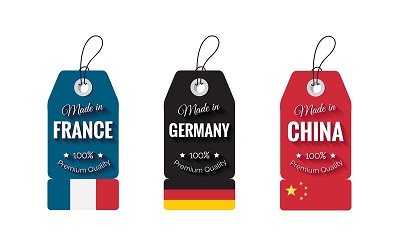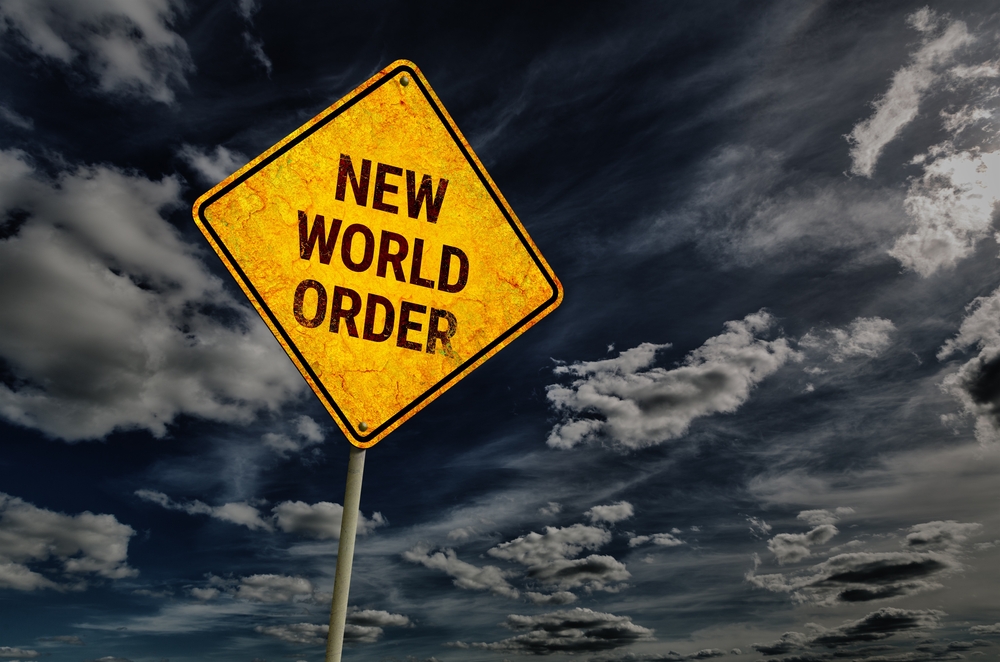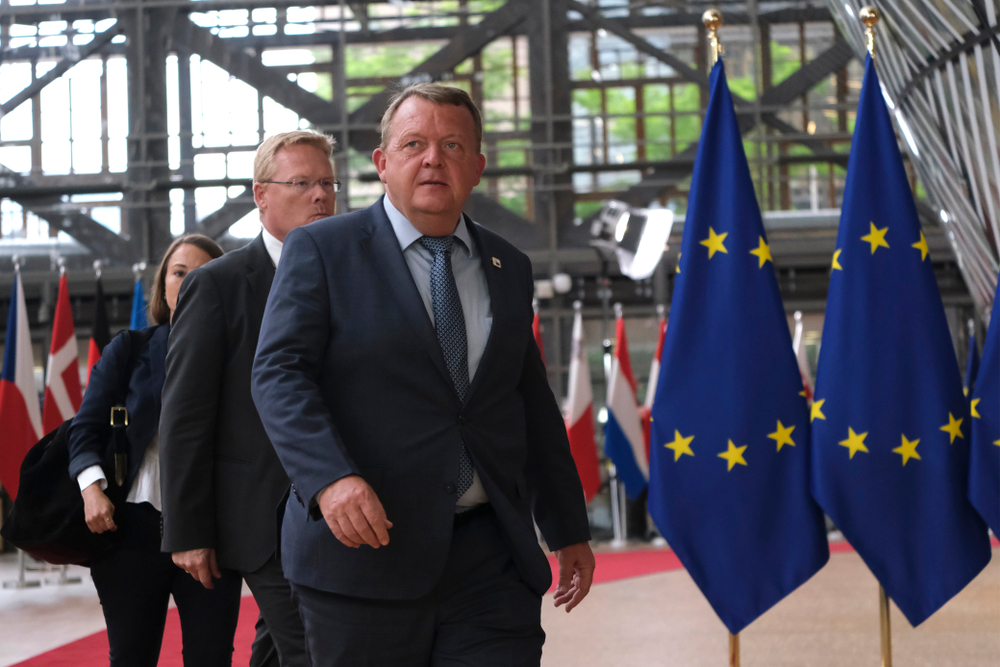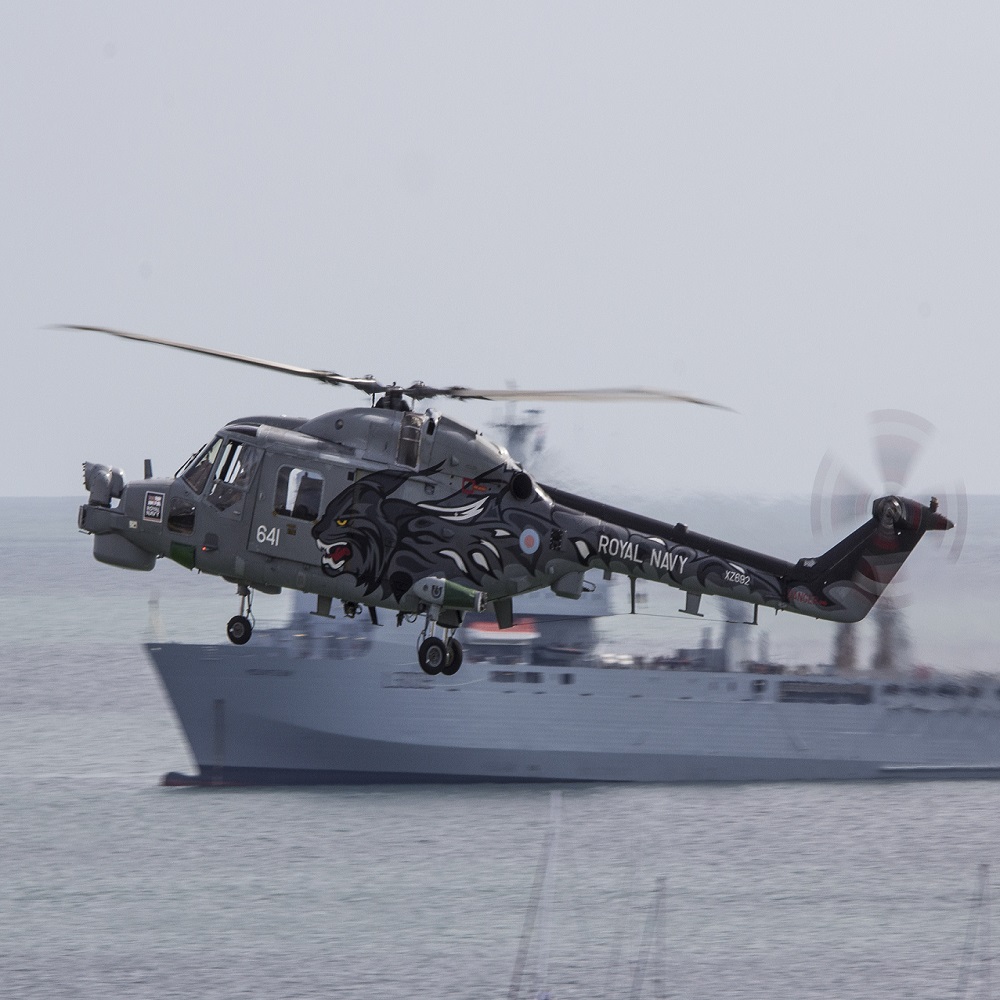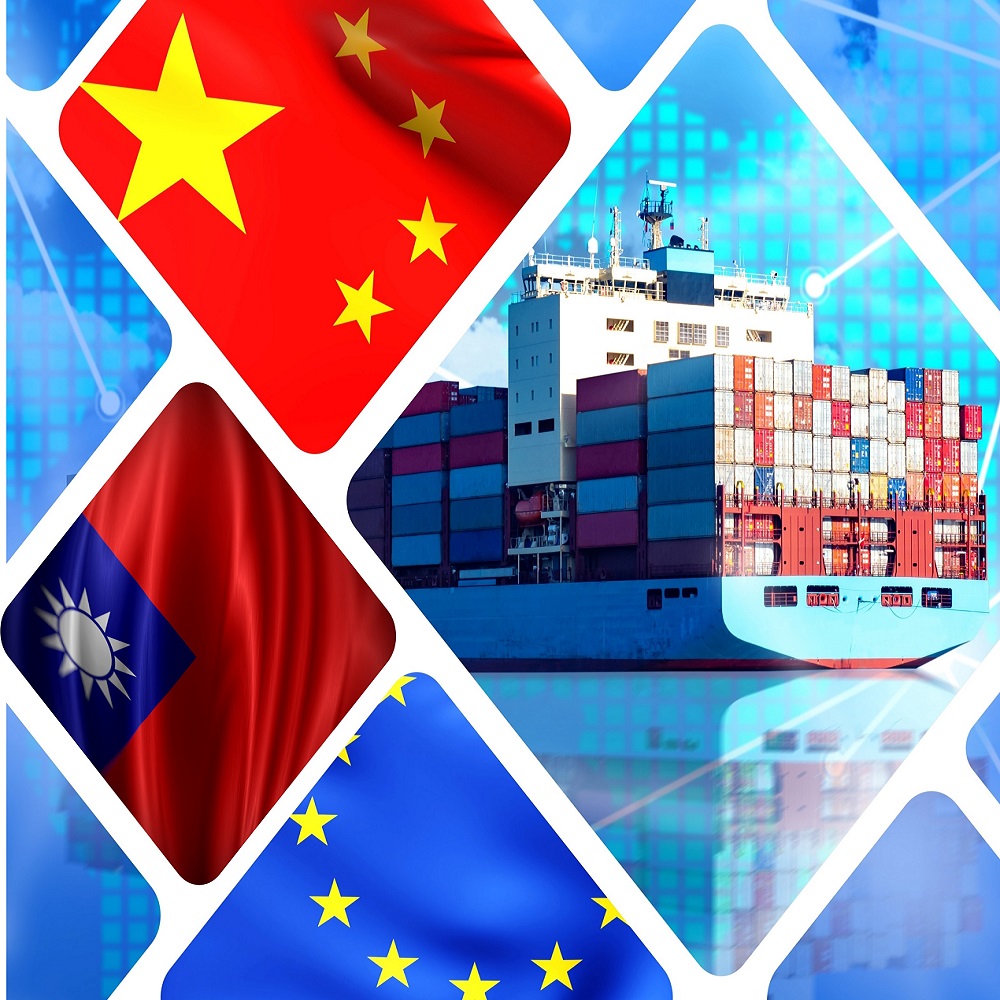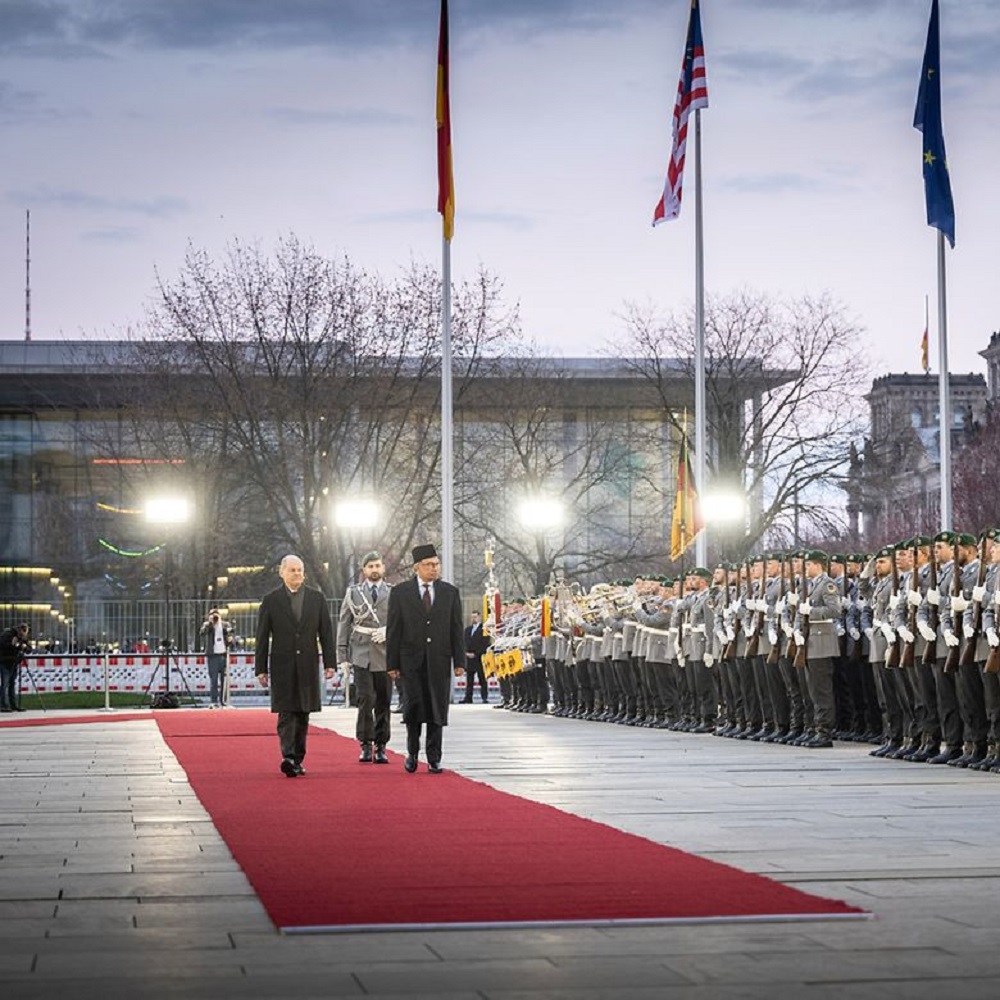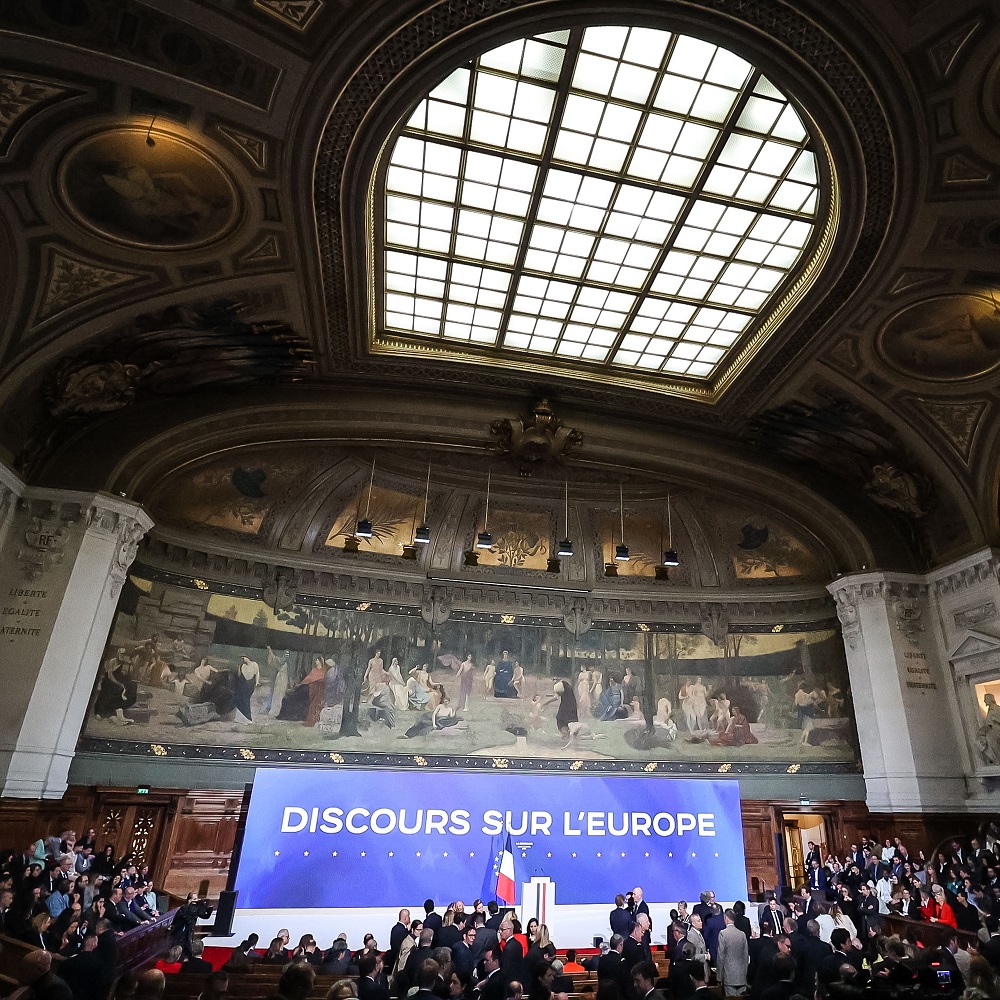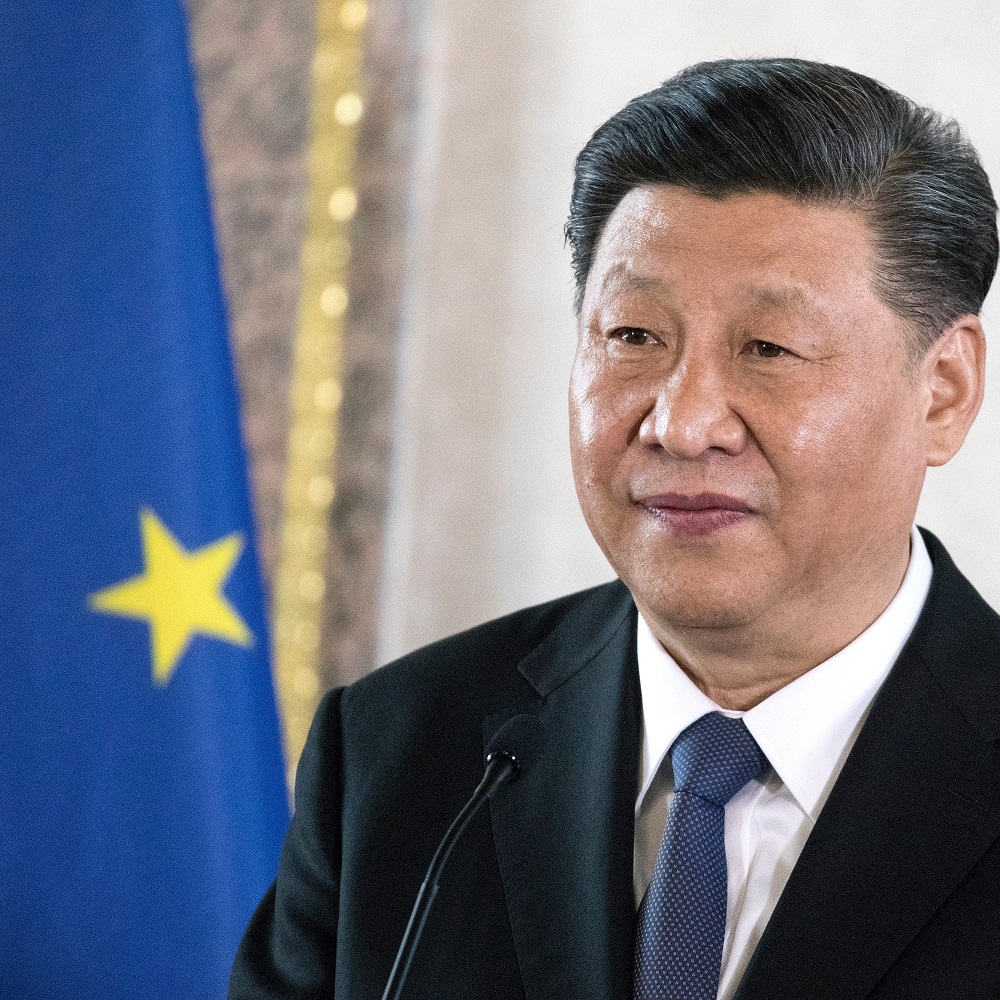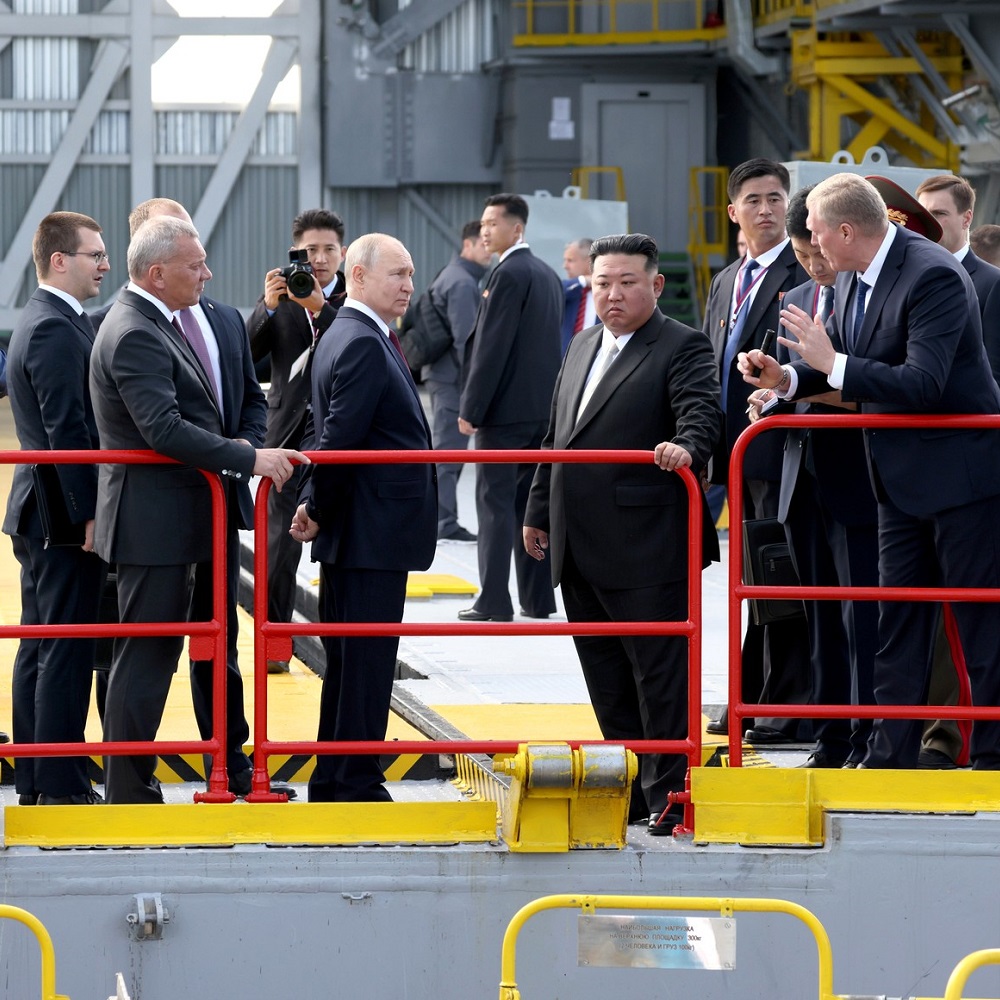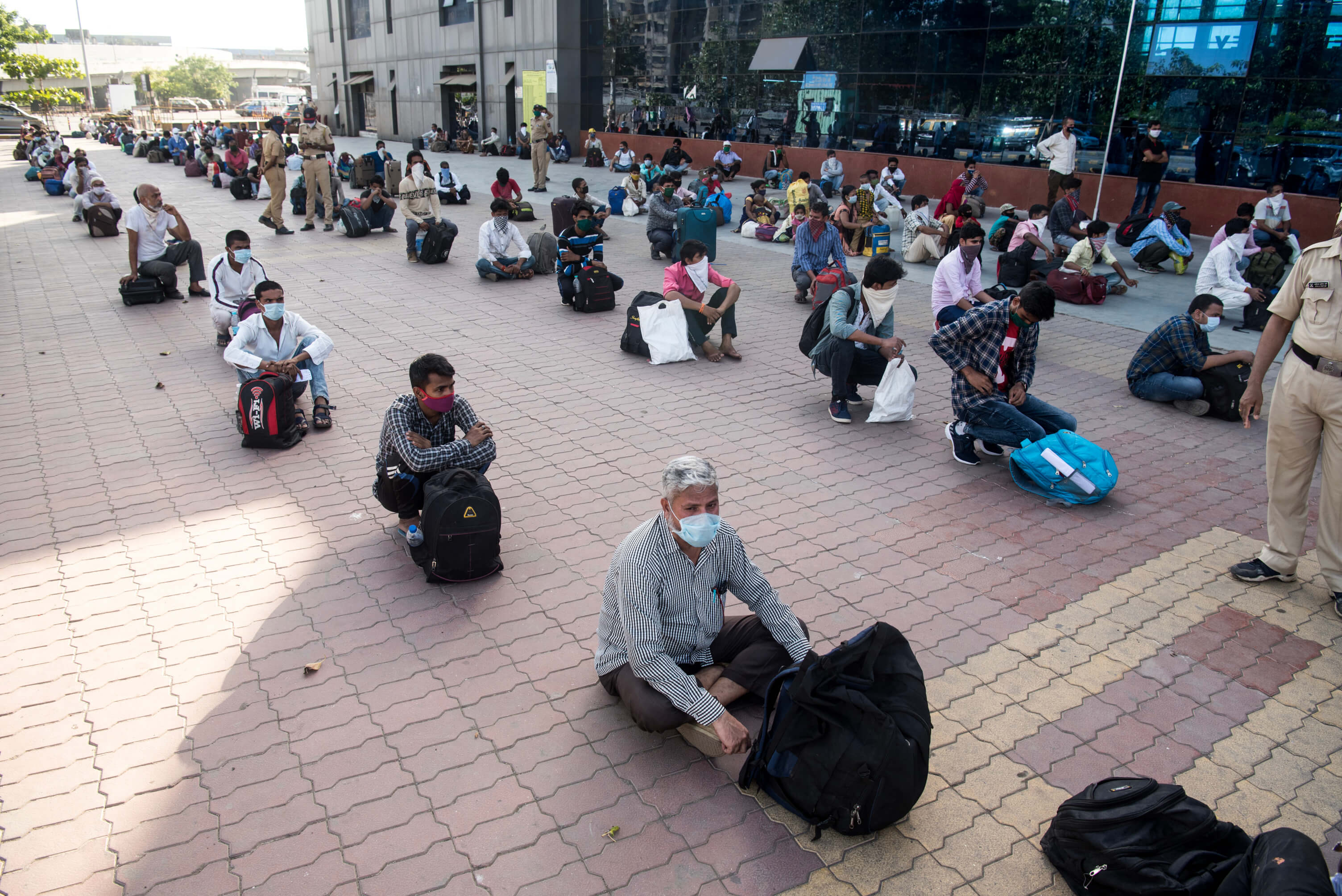
South Asian Migration to Western Europe: Origins, Trends, Perspectives
by Andrey Volodin
Migration flows from South Asia to Western Europe have a long history, the origins of which can be traced in the colonial development of the states of this region. The end of British colonial rule in India in 1947 was accompanied by the split of the once unified territorial space of Hindustan into two national entities - India and Pakistan. During the first decades after independence, there were intense migratory movements from the former colony to the former metropolis. British migration policy determined the direction and intensity of migration flows from the Hindustan Peninsula to the United Kingdom. The first post-colonial migration flows were based on the following reasons: Britain's interest in the influx of additional labor force, mostly of low qualification; the practice (which existed before 1947) of free human movements from the colonies to the mother country; features of the immigration policy of the United Kingdom, which allowed citizens of the countries of the British Commonwealth to choose their country of residence and even have their own companies in the UK. The vast majority of migrants from India were Sikhs, people from a peasant environment (mainly middle-class farms), who served in the colonial army and police units, as well as their relatives, who did not fail to take advantage of the opportunity to leave. Prior to the adoption of The British Commonwealth Immigration Acts 1962 and 1968 by the Parliament of the United Kingdom, indians, as Commonwealth citizens, had unlimited rights to enter the territory of the former metropolis. Many of the new arrivals settled in industrial centers such as Leicester or Birmingham. Newly arrived migrants were employed in the textile and service industries. A significant part of them were employed in the services of Heathrow Airport in west London. The 1962 Act, which restricted the freedom of migration to the British Isles from the Commonwealth countries, actually already encouraged immigrants from India and other South Asian countries to settle on British territory. Soon their family members joined them. By the mid-1960s, most Indians arriving in the UK were listed as "dependants", as British government statistics described them. Dependents made up 75% of immigrants in 1965 and 80% in 1966. Migration flows from India to the former metropolis peaked in 1968, when the number of arrivals in the United Kingdom exceeded 23 thousand people. Migration flows from India intensified sharply between 1995 and 2005. Data from population censuses shows that the number of Indian migrants actually tripled between 1961 and 2001, from 166,000 to 470,000. To be fair, we note that the British, who were born in India, were also immigrants. In 2001, the Indian community in the United Kingdom numbered about 1 million people, with about a fifth of its composition coming from South Africa and former East African colonies. In 2007, the number of Indians in the UK increased to 1.3 million people. Until the early 1990s, the former metropolis remained the main haven for Indian migrants, but gradually their influx began to spread to Western and, to an increasing extent, Eastern Europe. For the period 1995–2005 about half of the migrants from India heading for Europe ended up in the UK. The rest preferred other EU countries, primarily Germany and Italy, which accounted for 18 and 12% of Indian migrants respectively. During the period under review, there was an increase, albeit slowly, in the number of Indians moving to Belgium and Sweden. Approximately 1,000 settlers per year settled in France, where the Indian community, which by the mid-2000s was about 65,000 people, largely consisted of ethnic Indians from Madagascar, the Seychelles, Reunion and Mauritius. For a better understanding of the reasons for the intensification of migration flows from India and other countries culturally related to this country, it is worth recalling the policy deliberately pursued by a number of European governments, the meaning of which was to invite skilled and relatively inexpensive labor from the “largest democracy in the world”. Thus, the temporary “green card” migration initiative that operated in Germany from 2000 to 2005 was initially focused on attracting Indian information technology specialists. In Italy, the Indian community was formed from those who initially entered the Apennines illegally, and subsequently received legal grounds for staying in the country. The vast majority of Indian migrants in Italy are from Punjab, working on dairy farms and other agricultural sectors. The development of information technology and related industrial clusters in India, the high-quality professional training of graduates from Indian institutes of technology - these and other factors predetermined the interest of the United States, Western Europe, and Australia in attracting skilled labor from India. Already in 2000, at least one third of migrants in the field of information technology in the UK represented India. In 2000–2004 more than 245 thousand migrants of this profession settled in the USA. In this kind of "migration competition" India was second only to Mexico, China and the Philippines. In the UK, in October 2004, a program was adopted to "naturalize" successful Indian students (as well as representatives of other Commonwealth countries) in the specialties: physical sciences, mathematics and engineering. The naturalization program has become an additional source of attraction to the United Kingdom of future specialists in the field of natural sciences and exact sciences from India, Pakistan, Bangladesh, Sri Lanka and Nepal. At the same time, this program has become a tool for managed migration to the UK. This practice is followed by the United States, Canada, Australia, New Zealand, Ireland, as well as France, Germany and the Netherlands. Demand for foreign labor with a high share of added intellectual value is ultimately determined by the characteristics of the socio-demographic structure of the population of Western European countries. The rapid “aging” of the workforce in the countries of the historical “core” of the current EU encourages the governing bodies of this organization to use such tools to attract future workers in the “knowledge economy” as educational fairs. At the same time, the use of foreign “intellectual production proletarians” is conceived as the provision of appropriate services without staying in a Western European country on a permanent basis. The movement of human capital from India and South Asian countries to Western Europe, in the understanding of local elites, has a twofold goal: 1) to increase the competitiveness of Western European economies in the world economy and at the same time 2) to deprive the countries of the South Asian region of independence in choosing national models for the development of the information technology industry. There are also restrictions even for this type of migration: the EU authorities are seriously afraid that the massive import of labor from India and other (not only South Asian) countries with a high share of added intellectual value may in the future undermine the reproduction of national scientific schools in Western European countries employed by developments in the field of information technology and their application in the economy. Finally, a group of political factors is of no small importance in the formation of the migration policy of the EU countries, in particular, dissatisfaction with the “substratum of other civilizations” in the Western European cultural environment on the part of forces supporting national populism. A significant proportion of Pakistani migrants to the UK originate from the Mirpur district in Azad Kashmir (area now under Pakistani control). The county has a long history of emigration. So, people from Mirpur worked as stokers on British ships, whose home ports were Bombay and Karachi. Subsequently, in the late 19th and early 20th centuries, some of them settled in the United Kingdom. Post-war Pakistani migrants in the British Isles took jobs in the textile factories of Lancashire, Yorkshire, Manchester and Bradford, in the car factories of the West Midlands and its largest city of Birmingham, filled the light industry development zones in cities such as Luton and Slough. Among other groups of migrants from Pakistan, it is customary to single out Punjabis who settled mainly in Glasgow, Birmingham and Southall, an area of west London that is often called “little Punjab”. The main migration flows from Bangladesh to the British Isles occurred in the first half of the 1970s. They were a reaction to civil unrest in the newly formed state and affected primarily the Sylhet region in the north-east of the country, located directly near the Bangladeshi-Indian border. Initially, Bangladeshi migrants were employed in steel mills and textile mills throughout the UK, but after the closure of these enterprises due to the economic crisis, Bangladeshi migrants rushed into small businesses, primarily in tailoring and catering, including restaurant business. Many people from Bangladesh actively joined the network of Indian restaurants, which was rapidly developing in those years, and subsequently took over a significant part of it. The first migration flow from the relatively developed Sri Lanka (before 1972 - Ceylon) to the UK, modest in size, falls on the 1960s-1970s. Migrants arriving from the former colony were employed in the UK National Health Service, as well as in other areas of the economy where white-collar workers work, becoming employees, administrators, managers, etc. For the most part, the migrants who arrived in the British Isles were from wealthy families and well-educated. They quickly found a use for their abilities in the United Kingdom. The second wave of Sri Lankan migration to the UK occurred in the 80s and was a product of the civil war that swept the island at that time. A significant number of wealthy Sri Lankan Tamils sought refuge in the former metropolis. The migrants of the second wave were not as well-born as their predecessors, however, like many refugees to the West, they did not belong to the "lower classes" of society. Sri Lankans are employed in the traditional segment of the service sector: in shops and restaurants, and some of them even managed to open their own business. CONSEQUENCES OF THE MIGRATION CRISIS OF 2015 Significant adjustments to the intensity of the movement of people from the territories of the “global South” to the space of the “historical North” were introduced by “truncated globalization” (which further exacerbated the contradictions between the leaders of the world economy, primarily the United States, Western Europe, Japan, with on the one hand, and the rest on the other). It gave rise to both active (“passionary” anti-globalization movements and projects) and passive (intensification of migration flows towards the original “core” of the EU) response of transitional societies – the main part of the ecumene. It is believed that the main migration “corridors” from transitional societies to industrialized countries will retain their main direction in the future, especially since demographic processes in the “global South” will continue to exert migration pressure on future generations in the coming decades. India (and South Asia in a broad sense) remains the territory of origin of the largest number of international migrants: 17.5 million Indians live abroad. For the countries of South Asia, a region with significant labor surpluses, migration eases labor market strains while contributing to poverty alleviation through remittances. It is therefore not surprising that the countries of the South Asian region remain the largest recipients of remittances in the world: in 2018, in countries such as Pakistan, Sri Lanka and Bangladesh, remittances from abroad exceeded 5% of the GDP of these states. It is also worth noting the factor of internal migration in the countries of South Asia: for the period 2001–2011 the urban population of these countries increased by 130 million people, which became an additional incentive for external migration. The most desirable destination regions for illegal migrants from South Asia are Western Europe, North America and Oceania. Demographers note that South Asian migrants bound for Western Europe are smuggled to their destination mainly through Central Asia and the Russian Federation, but also through the Middle East towards the Western Balkans. Finally, South Asians are driven to move to Western Europe and the Gulf region by the constant risk of natural disasters, which primarily affect Bangladesh, India and Pakistan. Obviously, the most socialized and adapted groups of the urban population of South Asia are ready to change their way of life. As of 2019, the largest migrant groups in the United Kingdom were immigrants from India, Poland and Pakistan. In the UK, France and Germany, there is a positive correlation between the high quality of human capital among migrants and their innovative activity. Migration flows are expected to influence the activation of the forces of national populism in Western Europe. Thus, after the migration crisis of 2015, the influence of the respective parties is rapidly growing, winning back positions from the centrists and social democrats. “People's parties” are becoming more and more successful, uniting various segments of the population, including those who are dissatisfied with the growing influx of “other civilizational substrate” into the countries of Western Europe. Thus, the policy of "traditional" parties contributes to the growth of the influence of the forces of national populism. Traditional parties justify their policy of accepting migrants by the need to integrate the labor market in the face of a growing shortage of skilled labor. According to traditionalists, the integration of the labor market has an inevitable consequence of strengthening the economic viability of society and increasing the viability of its political institutions, as well as the feeling of new arrivals of their belonging to the host society. The problem of socio-economic (as well as cultural) adaptation of migrants in the societies of Western Europe remains acute: in 2017 in the EU, the unemployment rate among migrants was 13.3%, while among the autochthonous population it did not exceed 6.9%. The coronavirus pandemic has made significant adjustments to the intensity of migration flows. As a result of the pandemic, the IMF blog writes, “migration flows suddenly stopped. The Great Lockdown is temporary, but the pandemic could reinforce general sentiments of insularity and disbelief in opening up to the outside world and have a more lasting effect on countries' propensity to accept migrants. Decline in immigration and high unemployment in destination countries will have a negative impact on the situation in its origin countries, especially the poorer ones, which are heavily dependent on the remittances that migrant workers send home”. The costs of migration also include the need to overcome geographical and linguistic barriers. Integration into the economic system of the host country implies a thorough mastery of its language, which is a precondition for the adaptation of migrants in a different cultural and social environment. So, immigrants from Bangladesh adapted well to the Apennine Peninsula because they were able to master the Italian language, which is difficult for the inhabitants of South Asia. As the Italians believe, people from Bangladesh are more industrious and less pretentious than Indians, and are ready to work in the most adverse conditions. Finally, migration from Bangladesh is economically beneficial for Italians: migrants with skills in light industry are welcome “guests” in the Apennines, since they make up a significant part of the staff of textile enterprises that manufacture products with the “Made in Italy” identification label especially valued by foreigners. Other dangers await the settlers. It is worth remembering that migrants to the West often find themselves in a “poverty trap” due to insufficient funds to pay the costs associated with migration. Nevertheless, experts believe that a one percentage point increase in migrant influx relative to total employment increases output by almost 1% by the fifth year of the resettlement in a new place. The desire of South Asians to move to Western Europe may be due to the fact that in the case of immigration to countries with emerging markets and transition societies, such a positive impact of labor productivity growth is not observed, primarily due to the difficulties of adapting to the conditions of local markets of underdeveloped countries. Migration can also create problems in the area of income distribution in the host society, since in some segments of the labor market, local workers (or people from Eastern and Central Europe who have already settled down in Western Europe) may suffer material damage, at least temporarily. Modern migration and migration policy in Western European countries continue to be influenced by the experience of previous decades. Thus, post-war migration to Western Europe from the former colonies was structured both by centuries of experience in moving along the route of the colony-mother country, and by a significant demand for relatively inexpensive labor for the needs of modernizing the economies of Western European countries after World War II. And some former colonial powers, such as the Kingdom of the Netherlands, were engaged in the movement of labor from their eastern possessions (Indonesia) to South America (Suriname). Historical memory is also invisibly present in the migration policy of France. So, in the 30s, almost a third of the population of this country was in the status of migrants, mainly they were immigrants from the countries of Southern Europe. Memories of the past, coupled with the migratory consequences of imperial existence, gave rise to the phenomenon of anti-immigrant political parties. The growth of the influence of the forces of anti-migrant populism was already observed in the 90s. Then the “National Front” quickly gained influence. As if responding to the challenge of anti-migrant populism, the right-wing government headed by E. Balladur is taking tough measures to limit the migration flow to the maximum and minimize emigration for political reasons. Subsequently, migration reforms were somewhat relaxed, but entry into France was strictly controlled, and the labor market was tightly regulated. The authorities of another colonial empire, Great Britain, acted in approximately the same way, pursuing a liberal line in relation to highly qualified migrants and implementing strict restrictive measures against refugees for political reasons. When assessing the prospects for resettlement of immigrants from India and other South Asian countries to Western European countries, it is necessary to take into account the EU factor, which has become a central element in building a new migration space in the unity of institutional rules for the movement of migrants and patterns of movement of peoples in the vastness of this integration association. It is important to keep in mind that migration is not a long-term solution to the demographic problems of the developed countries of Europe. It is assumed that most EU members, with the exception of France, Ireland and the United Kingdom, are doomed to a serious reduction in working-age populations in the coming decades. In addition, according to experts, labor markets in the EU countries are more inert and less flexible in relation to changing circumstances than in the US. Potential resettlers have to reckon with growing migration concerns in the EU's leading countries. At the same time, the attitude of receiving countries towards migration varies from country to country. Thus, in the countries of Southern Europe (Spain, Greece, Portugal), a “permissive” political culture that does not condemn migration is still influential. It is no coincidence that almost half of the migrants who have arrived in the EU since 2000 began their journey to Europe from Spain. However, even in Spain, new arrivals are viewed by public opinion not only as a socio-economic challenge, but also as a threat to cultural and ethnic identity. Since the early 1990s, the UK has been implementing a policy aimed at limiting the number of refugees and migrants as much as possible. Sometimes the authorities of the United Kingdom resort to frankly everyday motivation for their anti-migration actions, referring to the aggravation of the housing problem and the growth of social tension in London and southeast England. Nevertheless, the UK remains one of the preferred destinations for migration to Western Europe. Moreover, the very policy of the Western European states remains contradictory. On the one hand, the desire to appease public opinion results in uncompromising rhetoric against irregular migration. On the other hand, the desire to attract the skilled labor force necessary for the economy dictates an emphasis on the temporary nature of migration, which does not imply the granting of citizenship or residence permits. Nevertheless, since 2002, the number of people entering the EU has been an impressive figure - from 1.5 million to 2 million people. In other words, the conflict between the principles of the functioning of the nation-state and the guiding principles of multiculturalism defended by the settlers (as a method of managing interethnic relations in the host society) is becoming an integral part of the political development of many European countries. From now on, the confrontation between the principles of assimilation and multiculturalism becomes the axis of the entire socio-political development of the West. Until recently, multiculturalism had a strong influence on the attitude towards migrants in the Scandinavian countries, while assimilation has become clear in Greece, Austria, Poland, and Hungary. However, within the EU, the “multicultural consensus” is being increasingly tested for strength, in particular in Sweden. Similar trends are observed in the UK, France and the Netherlands. The sheer number of migrants can sometimes be misleading. Thus, the largest number of immigrants is recorded in large countries (Germany, France, Spain and the United Kingdom), while their highest proportions are noted in small states (Austria, Denmark, the Netherlands and Switzerland), which has an inevitable projection on the sphere of political relations. In addition, many countries do not keep statistics on the religious affiliation of the population, which is done in the name of the sacred principles of secularism. However, the situation is starting to change. Thus, in the UK in 2001, they began to take into account the confessional identity of the population, primarily to control migration flows from India and South Asia. At the same time, in the censuses in France and Germany, religious affiliation is not yet recorded. By the ratio of the principles of multiculturalism and assimilation, it is customary to single out several groups of European states. States that do not officially recognize the fact of multiculturalism (Germany, France, Greece, Denmark, Austria, Portugal, Finland, Ireland). At the same time, Italy, Finland, Germany, and Ireland practice bilingualism in relation to compact national minorities that have been living in these countries since ancient times. This principle does not apply to migrants. States that have delegated “linguistic powers” to several languages (Spain, Switzerland, Belgium). The envisaged status for French and Flemish in Belgium and the similar legal status for Catalan and Basque in Spain are intended to stop separatist tendencies in these societies and do not apply to the linguistic means of communication of migrants. States where multiculturalism has historically existed (United Kingdom, comprising England, Scotland, Wales and Northern Ireland), but its principles do not apply to migrants. States with a detailed policy towards migrants on a secular basis (Sweden, Norway), which is subjected to extensive criticism by various socio-political forces. States that initially accepted multiculturalism but subsequently rejected it (Netherlands). On the one hand, in Amsterdam and Rotterdam, the largest centers of multiculturalism, special services for helping migrants have been preserved. On the other hand, the main socio-political forces of the country and the parties expressing their interests are strongly opposed to further external migration, and not only from the “global South”. The attitude towards the principles of assimilation and multiculturalism is also manifested in the life attitudes and practical activities of various social forces. Thus, liberals and social democrats prefer the discourse of multiculturalism, while conservatives present themselves as the guardians of the values of the nation-state, Christian ethics and national culture. However, the above dichotomy acquires important clarifying characteristics and nuances when the analysis program includes the contradictory position of trade unions, on the one hand, belonging to the left side of the political spectrum, and on the other hand, forced by the logic of internal political development to counteract the migration of foreign labor and the adaptation of migrants in the host country. The attitude towards migration of the business community, conservative in its cultural orientations and attitudes, and at the same time interested in the import of foreign labor as a factor in “compensating” the insufficient demographic potential of an “aging society” and an instrument of economic growth within a particular Western European country, is also distinguished by a considerable originality. The initial unfriendly reaction of the local population to the new arrivals was dictated by fears of an exclusively economic nature, that is, the unwillingness to financially support migrants. Settlers were not then seen as a threat to national culture and national identity. However, as refugees settled in a new place, their families increased, religious buildings were built, and European politics were actively involved, the attitude of Europeans towards migrants began to change. The “clash of civilizations” (SP Huntington) in Europe intensified. The “racial riots” of 1958 in Great Britain can be considered the historical starting point for the escalation of conflicts on a civilizational basis. In this country, most migrants had the status of subjects of the British Empire, which definitely facilitated their entry into the arena of political life. Race remained at the heart of the issue of multiculturalism in the UK until at least the late 1990s. At first, no serious significance was attached to the factor of religion as a fundamentally different model of behavior in Western Europe. The spread of Islamist radicalism and terrorism, rooted, as some politicians now argue, in the Islamic value system, has become a kind of watershed. The essence of their ideas boils down to the fact that Islam is allegedly in a state of “permanent war” with the West in general and with Christianity and democracy in particular. This kind of sentiment is supported by a part of the Western European press, which regularly publishes anti-Islamic stories coming from the Middle East and Central Asia. Shifts in the positions of political parties in Western European countries on migration issues can be summarized as follows: - there is a strengthening of the motives of national culture, the principles of assimilation and loyalty to European political values; - control over migration processes is being tightened, including increased attention to political refugees; - the “horizontal” interaction of the migration authorities of the interested European countries in the field of control over the movement of foreigners to the EU countries is being strengthened; - there is an actual refusal of the political elites of Western Europe from the principles of multiculturalism, as well as from the concept of "universal values"; - attempts are being made to introduce “rational” (that is, deliberately complicated) concepts of migration policy into the life of the EU countries; - organizational resources and political powers of organizations supervising migration processes are increasing. Such steps by the Western European elites, which do not formally abolish the principles of racial equality and the practice of religious rites by migrants, actually exclude the further development of the principles of multiculturalism. The situation of migrants is also complicated by the unwillingness of orthodox Muslim activists to compromise with the authorities of the host country in the sphere of religious rites, which undermines the position of supporters of multiculturalism in Western Europe. In the current conditions, militant opponents of multiculturalism are turning for support not only to Western European lumpen and outcasts, but also to a significant part of the middle class and anti-migrant parties that advocate Christian values. For their part, members of the Muslim community believe that the "war against terror" in the West, started in 2001, has escalated into a "war against Islam." In the smaller EU countries, fears of being “absorbed” by a foreign culture are constantly fueling radical, anti-immigrant sentiments. It can be assumed that the events of the beginning of this century (September 11, 2001, the wars in Afghanistan and Iraq, terrorist attacks in the countries of Western and Southern Europe, etc.), as well as the European migration crisis of 2015–2016 laid the foundation for shifts in the public consciousness of the population of the EU leaders that are unfavorable for migrants. The dominance of multiculturalism was replaced by the idea of the nation-state as a community bound by the unity of interests and the norms of Christian culture. At present, in the broad sections of the population of Western Europe, the idea of the ongoing erosion of the fundamental principles of the life of society, which undermines its integrity, is being strengthened. In the current reality, even highly educated migrants are beginning to be seen as a threat to the national unity of society. Such mindsets are constantly fueled by the systemic economic crisis, which calls into question the once stable notions of multiculturalism as a force capable of simultaneously ensuring the prosperity and security of Western society. CURRENT TRENDS IN MIGRATION FROM SOUTH ASIA TO THE EU The migration crisis of 2015–2016 turned the problem of migration into a central political issue in the internal life of the leading Western European countries. In the new conditions, socio-political forces and parties that advocate tough restrictive measures against the influx of migrants of other cultures into the EU receive more and more significant support in the new conditions. However, the resettlement of immigrants from South Asian countries to Western Europe continues, which is confirmed by the example of the Netherlands and Italy. Migration from India and other South Asian countries to these two countries is mostly “productive” in nature: for the Netherlands, an influx of quality labor in the information technology sector is important, while Italy needs a “demographic dividend” in the agro-industrial complex. In the Netherlands, where there is a need for qualified personnel for a rapidly growing information technology cluster, educated migrants from India have benefited from the liberalization of migration policy in important segments of the economy. True, in this country, a kind of Damocles sword is suspended over the problem of migration: the murder of film director Theo van Gogh in 2004 by a native of North Africa stimulated the growth of anti-migrant sentiment in the Netherlands, which traditionally had a reputation as a “home of tolerance”. Note that the need for skilled workers in the Netherlands is higher than the EU average (by 10%). Here, as in other countries of Western Europe (primarily in the UK), expat Indians represent the most dynamically growing group of migrants. In the Netherlands, this community includes workers with the necessary professional training in the fields of information technology, consulting services, engineering, and enterprise personnel management. Significant Indian migration to the Netherlands began in the 1980s. By the beginning of the 2010s, about 22 thousand Indians lived in the country (compared to 9 thousand in 1996). The Kingdom attracts Indian migrants, first of all, with a favorable living environment, a high standard of living, the widespread use of the English language in the country, a tolerant attitude towards foreigners, etc. Young educated Indians find themselves in the Netherlands in several ways. In addition to the traditional recruitment practices of Dutch companies, the factor of expanding the activities of Indian companies in the kingdom is becoming increasingly important. Thus, currently more than 200 companies from India, mainly from the information technology sector, are active in this country. It should be taken into account that the information technology sector, on the one hand, is a powerful driving force for economic growth in India, and on the other hand, this segment of the national economy accounts for more than 45% of all exports of services from India. Another way of delivering Indian labor to the Netherlands is the activity of transnational companies (TNCs) operating in the country, interested in attracting from India the profile workforce of the required quality. The reluctance of some Dutch people to perform certain types of activities in the information technology segment also plays a role. In this case, English-speaking and law-abiding Indians are perhaps the best candidates for high-paying positions in this sector. In other words, the Netherlands attracts skilled, expensive labor to the country, the price of which (as of the beginning of 2019) starts at 4.5 thousand euros per month and 3.2 thousand euros per month for people under 30 years old. In turn, the Italian economy is experiencing a need to increase the volume of dairy production, which opens up opportunities for the Indian labor force, primarily from the northern state of Punjab. Many migrants from India arrived in the Apennine peninsula without an accurate understanding of the nature of the Italian labor market and the peculiarities of Italian society. Some migrants have joined families of relatives who have already arrived in the EU. Arriving in the Apennines, Indian settlers from the Punjab countryside quickly adapted to northern Italy, an industrial zone that lacks quality labor for the agricultural sector. However, this was more a happy coincidence than the result of the successful functioning of the labor market due to the competent intervention of Italian government departments. Indian migrants have recently turned their attention to Italy. Thus, in 2003, the total number of Indian migrants to the Apennine Peninsula was fixed at around 35.5 thousand people, while by 2018 it had more than quadrupled to 151.7 thousand peoplef. As a result, India has now moved from 10th to 6th place in the list of the main “suppliers” of migrants to the EU countries (and to 5th place among non-EU countries). The configuration of the main concentrations of Indian immigrants to Italy has also become somewhat different. If in 2003 the Indians settled unevenly in the central subregions of northern Italy and in Rome, then at present the contours of settlement have become more dispersed: the Indians live mainly in ten provinces, and their largest concentration is in Brescia (14 thousand people per 200 thousand of the local population). Unlike the Netherlands, migration to Italy is often carried out on an unplanned basis - as a result of a situational shortage of labor in a particular segment of the labor market or as a situational reaction of the Italian migration system to migration flows from non-Western societies. It should be noted that in Italy the majority of Indians are engaged in low-skilled labor outside the agro-industrial complex, in particular in industry. In terms of the share of employment in this segment of the national economy, immigrants from India do not stand out among migrants who came from non-Western societies. The agricultural sector, being the area of activity of 28.6% (2016) of migrants, remains the main area for the application of labor skills for Indian migrants (24.1% of the total labor force from outside the EU countries). Even among self-employed workers who came from countries outside the EU, the share of Indians (7% in 2016) has increased almost sixfold since 2007. It should be noted that agriculture is a relatively small and ever-shrinking segment of the Italian economy, accounting for no more than 2% of the country's GDP and in which wages are only half of the total level in the national economy. However, when assessing the potential of the agro-industrial complex, nuances are important. Thus, with the declining role of agriculture, agricultural production in Lombardy, Emilia-Romagna and Veneto tends to increase - not least due to the hard work of Indian immigrants. The dynamic dynamics of development in these regions is shown by dairy production. An illustrative example is Cremona (population - about 75 thousand people), the administrative center of the Italian province of the same name. The resettlement of Indians began in the first half of the 90s with the use of tourist visas. Dairy production in the region was affected by the technological modernization of this sector, which began in the 60s and sharply reduced the demand for labor in Italian agriculture. However, the reduction in the supply of labor in the dairy sector was so significant that it was necessary to attract skilled labor from abroad, and this was a historic opportunity for hardworking Punjabis. A particularly significant contribution of Indian migrants was to the preservation of the cheese industry in the province of Cremona. In other words, the traditions of working on the ground were in demand in the north of Italy, where climatic conditions and temperature conditions almost perfectly match those of the Punjabi. Finally, the hard work of the Indians, their willingness to work on weekends and holidays, as well as overtime, are invariably noted by Italian employers. However, the interest of Indians to work in Italy has its own practical reasons. On the one hand, overtime work allows you to earn up to 3 thousand euros per month, receiving part of the payment “in an envelope” (a procedure common in Italy). Thus, the total income increases, which allows not only to send part of the proceeds to Punjab, but also to invest in the future - to invest savings in various sectors of the Italian economy. On the other hand, living on farms at work allows Indians to avoid the vicissitudes of the housing market in Italy, including discrimination against newcomers. In addition, employers highly appreciate the role of family ties among Indians as a stimulant of productive work. It is significant that employers have a positive attitude towards such qualities of Indians as internal balance, punctuality in the performance of official duties, enthusiasm for work, and note their lower predisposition to conflicts (both with the employer and with colleagues), which favorably distinguishes Indians from, for example, Egyptians and Moroccans. However, it should be taken into account that the Punjabis are a historically formed community of high-quality labor force. Their qualifications are highly valued far beyond the borders of India, whose national economy clearly lacks professionally trained workers capable of performing modern production operations. European migration crisis in 2015–2016 made significant adjustments both to the routes of movement of immigrants, and to the intensity of the human flows themselves from the “global South” to the “historical North”. India and other countries of South Asia remain one of the main sources of migration activity in the world. The examples of the Netherlands and Italy show that there is a “demographic dividend” in the South Asia region that can be used to benefit economic growth and development in industrialized countries. Both the Dutch and the Italians use the services of India's competitive populations. This experience, perhaps, should be used by Russia, which is in need of importing a “demographic dividend”. However, it is advisable to remember that the Indian authorities, conducting relevant negotiations with the Russian leadership, offer labor with low qualification characteristics for export. Defending national interests in such a specific area of bilateral relations will contribute to a better understanding by the Indian side of our real needs in the import of human capital and will confirm Russia's serious attitude towards multidisciplinary cooperation with the "largest democracy in the world."









